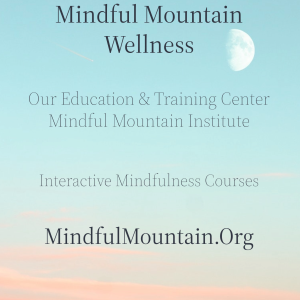
Tuesday Aug 27, 2024
Episode 1 Reframing Problems into Solutions: Perceptions
Have you ever noticed the perception you have of yourself, others, and the world around you. This lesson will help gain awareness in how perceptions can influence our world view in each day.
Our experiences shape the way we see the world. This includes what has been passed down through many generations. Perceptions play a critical role in shaping our experiences and interactions with the world around us. They influence how we interpret events, understand others, and make decisions. Our perceptions are often formed by a combination of past experiences, cultural influences, and personal beliefs. As a result, two individuals can perceive the same situation in markedly different ways, leading to varied responses and outcomes.
In the context of wellness, perception can significantly affect one’s mental and physical health. For instance, a person who perceives stress as overwhelming might experience anxiety and burnout, while someone who views stress as a challenge may approach it with resilience, finding opportunities for growth and learning. This distinction highlights the power of mindset and the importance of cultivating a positive perception.
Also, our perceptions can create barriers to connection and understanding. Misinterpretations can lead to conflicts or feelings of isolation. Promoting awareness of our own perceptions and being open to the perspectives of others can enhance empathy and improve communication.
In mindfulness practices, individuals are encouraged to observe their thoughts and feelings without judgment, allowing them to recognize and potentially shift their perceptions. This shift can lead to improved emotional regulation and a greater sense of well-being. Ultimately, acknowledging the role of perception in our lives can empower us to navigate challenges with greater awareness and intention.. They are formed through a myriad of influences, including personal experiences, cultural backgrounds, and social interactions. Each person's unique perspective filters their interpretations of events and informs their reactions to the people and situations they encounter. This complex interplay of perceptions can lead to differing opinions, beliefs, and behaviors within communities. As we engage with others, our perceptions may shift, expanding our understanding and sometimes challenging our long-held views. Ultimately, these variations in perception contribute to the rich tapestry of human experience, influencing not only individual interactions but also the broader societal dialogue.
Perception refers to the way we interpret and make sense of the world around us, shaped by our thoughts, beliefs, and past experiences. Mindfulness, on the other hand, is the practice of being fully present and engaged in the moment, without judgment.
When we cultivate mindfulness, we enhance our ability to perceive our surroundings and internal states more clearly. This heightened awareness allows us to notice the details of our thoughts, emotions, and physical sensations, creating an opportunity to respond rather than react to our experiences. By acknowledging our perceptions as they arise, we can gain insight into how our mental frameworks influence our understanding of situations.
No comments yet. Be the first to say something!